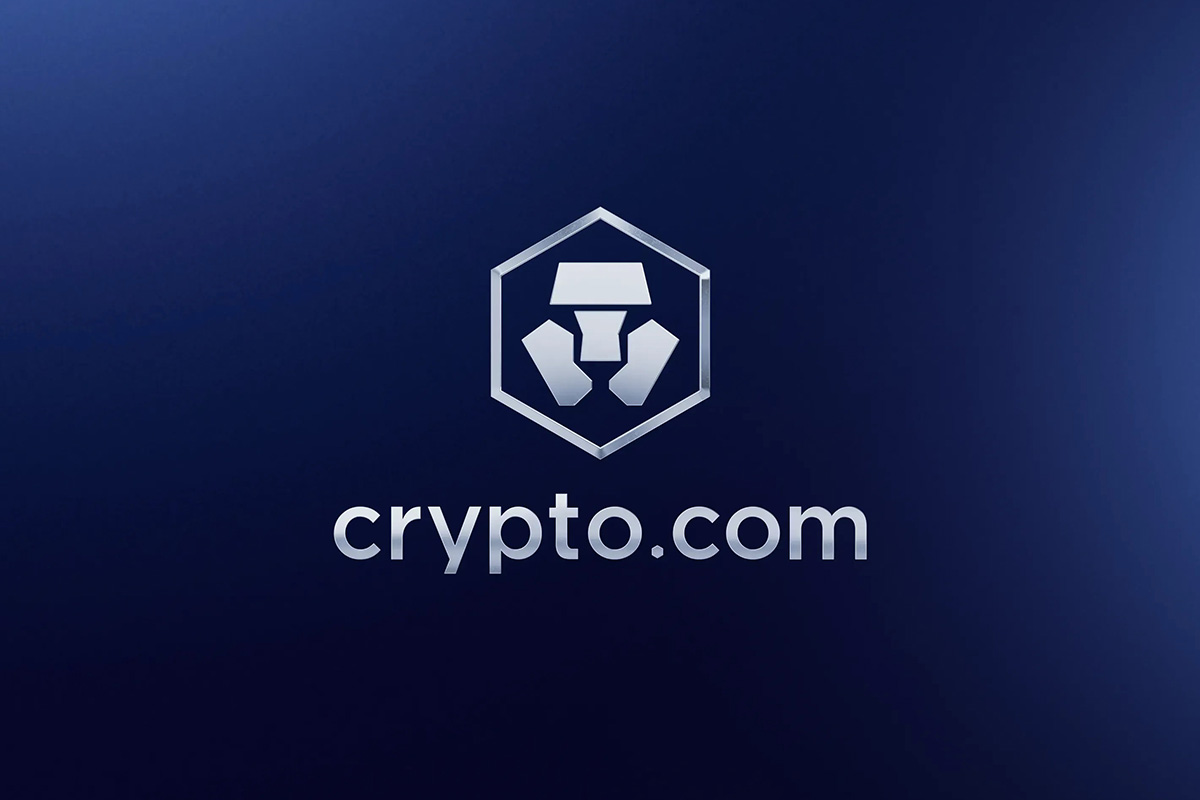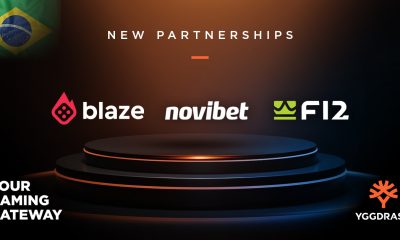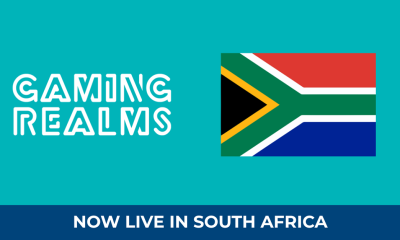Compliance Updates
A Guide to Isle of Man Gambling Regulation: Ensuring Compliance and Integrity in the Online Gambling Industry

Nick Bowden is the Head of Regulatory Affairs for SolutionsHub with a passion for assisting businesses navigate complex gambling regulation. As a highly respected former Inspector for the Isle of Man Gambling Supervision Commission (GSC), Nick has a unique and invaluable perspective on the regulatory landscape.
During his tenure with the GSC, Nick worked closely with online gambling operators, ensuring their adherence to the stringent regulations set by the Commission. His responsibilities spanned a wide range, from processing applications, ongoing supervision, and conducting compliance visits to participating in policy projects.
In this article, Nick explores the intricacies of Isle of Man online gambling regulation and supervision. Leveraging his wealth of experience from both sides of the regulatory spectrum, he offers an overview of the regulatory landscape. This includes an examination of the key requirements for operators and the pivotal role of the GSC in upholding the integrity of the industry.
The Isle of Man: A Hub for Online Gambling Businesses
The Isle of Man is a well-established jurisdiction for online gambling operations, offering a number of significant benefits for licence holders:
- A robust regulatory framework;
- A favourable tax regime;
- A skilled workforce; and
- State-of-the-art infrastructure.
These factors have made the Isle of Man an attractive destination, both for start-up businesses and established operations who may be looking to relocate or set up an additional entity in the island.
What Does the GSC do?
The GSC is responsible for the regulation and supervision of all gambling activities on the Isle of Man. Its primary objectives include:
- Ensuring that gambling is conducted fairly and transparently;
- Protecting the young and vulnerable individuals from the potential harms of gambling;
- Keeping the gambling industry crime-free; and
- Maintaining the Isle of Man’s reputation as a trusted jurisdiction.
The GSC achieves these objectives through a rigorous licensing process, regular compliance audits, and the ongoing supervision of its licensed operators.
The Licensing Process: What Does It Entail?
To obtain a license from the GSC, issued under the Online Gambling Regulation Act 2001 (“OGRA”), an applicant must go through a comprehensive licence application process, which includes:
- Submission of a detailed business plan: This includes information about the proposed business model, company structure, ownership, key personnel, financial projections, marketing strategy and funding for the operation.
- Provision of supporting documentation: Applicants must submit various documentation to support their application, such as:
- Certificates of incorporation;
- Articles and memorandums of association;
- Shareholding structure;
- Proof of identity for key personnel;
- Evidence of financial stability;
- Evidence of the source of wealth and funds to finance the model.
- Technical systems evaluation: The GSC assesses the operator’s gaming platform, ensuring that it meets the required technical standards in terms of fairness, security, and reliability.
- Fit and proper tests: The GSC conducts thorough background checks on the company and its key personnel to ensure they possess the necessary integrity, competence, and financial standing.
- Payment of licensing fees: Operators must pay an application fee, and once successful with the application, a licence fee paid annually. Operators are also required to pay gambling duty where applicable, which is calculated based on the licensee’s gross gaming yield.
Upon successful completion of the licensing process, operators are granted an OGRA license, permitting them to conduct online gambling activities in the Isle of Man.
Compliance: An Ongoing Responsibility for Online Gambling Operators
Licensed operators must conform to the legislative requirements of OGRA and other Isle of Man gambling laws. To ensure the operations remain complaint, licensees are subject to ongoing compliance requirements, which include:
- Periodic reporting: Operators must submit quarterly financial and operational reports to the GSC, together with copies of audited financial statements on an annual basis; each demonstrating the licence holders’ ongoing compliance with regulations;
- Compliance audits: The GSC conducts both desk-based and on-site audits to assess the operator’s adherence with regulatory requirements;
- Player protection measures: Operators must ensure all player funds are segregated from operational funds and protected in the event of insolvency. Operators must also implement responsible gambling measures, such as the provision of self-exclusion options, and always maintain strict age verification and screening processes;
- Anti-money laundering (AML) and combating the financing of terrorism (CFT) controls: Operators must have robust systems in place to detect and prevent money laundering and terrorist financing activities. Operators must also appoint a competent Money Laundering Reporting Officer (“MLRO”) and AML/CFT Compliance Officer
Failure to comply with these requirements may result in penalties, including fines, or a suspension or revocation of the license.
Why Is Regulatory Compliance Crucial in the Online Gambling Industry?
At the heart of the Isle of Man’s regulatory framework is a focus on protecting players and maintaining the integrity of the industry, however unlike other tier-one regulators there is a distinct human connection between the GSC and its licensees.
By fostering a transparent, fair, and responsible gambling environment, the GSC helps build trust between operators, players, and other stakeholders.
Why is this trust so important? Consider the following aspects:
- Player confidence: When players feel confident that operators are regulated and adhere to strict guidelines, they are more likely to participate in that operator’s activities, which benefits both the industry and the Isle of Man economy;
- Responsible gambling: The GSC’s regulations help protect minors and vulnerable persons from the potential harms that are unfortunately often linked with the industry. The regulatory regime of the GSC ensures that operators promote responsible gambling practices and provide resources for those who may be struggling with gambling addiction;
- Fairness and transparency: By requiring operators to maintain fair and transparent gaming practices, players are able to have an enjoyable gambling experience with the knowledge they will always receive their fair and true winnings, whilst being free from risks of fraud and manipulation;
- Crime prevention: Strict AML and CFT measures deter criminals from using the services of OGRA licence holders as a conduit for illegal activities, keeping the sector clean and legitimate.
Ultimately, a well-regulated online gambling industry benefits all parties involved – players, operators, and the jurisdiction itself.
Key Takeaways for OGRA Licence Holders & Applicants
For online gambling operators seeking to set up operations in the Isle of Man, it is crucial to understand and comply with the regulatory requirements set by the GSC. Some key points to remember include:
- Thorough preparation: The licensing process is comprehensive, and operators must be prepared to submit detailed documentation and demonstrate their adherence to the required standards;
- Ongoing compliance: Obtaining a license is just the beginning; operators must maintain compliance with the GSC’s regulations throughout the lifecycle of their business;
- Player protection: A core focus of the GSC’s regulations is the protection of players, with an emphasis on responsible gambling, fair play, and security of player funds;
- Anti-money laundering and combating the financing of terrorism: Operators must have AML/CFT controls in the forefront of their mind, ensuring they have robust systems in place to mitigate the risk of financial crime within their operations.
The Isle of Man is a leading jurisdiction for online gambling operators, thanks in large part to the GSC’s commitment to maintaining a well-regulated and reputable industry. By understanding and adhering to the GSC’s regulations, operators can build a successful and sustainable online gambling business that benefits both their customers and the wider community.
Brevard County Sheriff Wayne Ivey
Florida: Attorney General James Uthmeier Announces Seizure of Over 500 Gambling Machines in Large-Scale, Multi-County Illegal Gaming Crackdown

Florida Attorney General James Uthmeier announced the results of a two-day sting operation targeting illegal gaming operations. The operation spanned Volusia, Brevard, Duval, and Flagler counties, resulting in the seizure of 525 illegal machines and $190,000 in illicit proceeds across 39 locations, according to preliminary operation results.
“Unlawful gambling operations often play a role as the financial backing behind criminal networks. These illegal casinos fuel organized crime, prostitution, and other illicit activities. Florida will see a major statewide crackdown on illegal gaming in 2026. If you’re running an illegal operation, don’t roll the dice; shut it down now,” said Attorney General James Uthmeier.
“The partnerships we have with the Attorney General, Florida Gaming Control Commission and surrounding law enforcement agencies are what give us great results. They help us keep our crime down in our communities and keep our citizens safe, because we don’t turn a blind eye to any crime,” said Brevard County Sheriff Wayne Ivey.
“These unregulated machines rarely pay out because they are set for the house to win. Illegal gambling is not a victimless crime. Often, it fuels other crime and preys on residents who are often elderly and on a limited income in the hopes of a big win,” said Flagler County Sheriff Rick Staly.
“This successful operation sends a clear message that organized criminal activity has no place in Florida. I’m grateful for the strong partnership between our agency, the Attorney General’s Office, and our regional law enforcement partners because by working together, we’ve made Duval County and the State of Florida a safer place,” said Jacksonville Sheriff T.K. Waters.
“The operators and slumlord property owners who prop up these unregulated, illegal casinos are ripping off our residents and costing them their savings. These casinos are connected to money laundering, drug smuggling and human trafficking. We will keep taking them down with our partners like the Attorney General and the Gaming Control Commission, but we really need further action from the Legislature to address this problem statewide,” said Volusia County Sheriff Michael Chitwood.
“The Florida Gaming Control Commission (FGCC) is thankful to Governor Ron DeSantis, Attorney General James Uthmeier, the Florida Legislature, and our law enforcement partners for these outstanding results. Thank you for this wonderful teamwork. These actions are protecting Floridians from predators who mislead unsuspecting citizens. True collaboration is key to a significant outcome such as today,” said Florida Gaming Control Commission Chair Julie Brown.
This was a joint operation by the Gaming Control Commission, the Office of Statewide Prosecution, Volusia County Sheriff’s Office, Flagler County Sheriff’s Office, Brevard County Sheriff’s Office, and Jacksonville Sheriff’s Office.
Machines were seized from restaurants, bars, gas stations, sham arcades, and standalone illegal casinos—some unmarked and some masquerading as other businesses such as nail salons and beauty supply stores. Law enforcement seizures included stand-up slot machines, PC slot machines, tabletop machines, coin-push machines, and fish table machines.
This operation advances Attorney General Uthmeier’s 2026 priority of executing a statewide crackdown on illegal gaming operations. The Attorney General has urged the Florida Legislature to enact reforms to increase the penalty for keeping a gambling house to a felony.
The post Florida: Attorney General James Uthmeier Announces Seizure of Over 500 Gambling Machines in Large-Scale, Multi-County Illegal Gaming Crackdown appeared first on Americas iGaming & Sports Betting News.
Compliance Updates
Romanian Mayors Push to Ban Gambling Halls

A wave of Romanian mayors has followed the example set by Slatina’s mayor, who recently announced plans to eliminate gambling halls from his city under newly amended legislation. While the political signal is growing louder, the decisive vote belongs to local councils – and gambling operators are unlikely to retreat without resistance.
On February 26, the mayor of Vaslui, Lucian Braniște (PSD), said he would submit a draft decision to the Local Council seeking a ban on gambling halls within the city. He argued that gambling has become a serious social issue across many Romanian communities.
“In recent years, gambling has become a real problem in many communities in Romania. Beyond advertisements and colorful lights, behind these halls, there are too often stories of affected families, debts, addiction, and suffering,” the mayor said.
In Ploiești, mayor Mihai Polițeanu also voiced support for eliminating gambling venues and announced that he would table a similar proposal before the City Council, Economedia.ro reported. He described parts of the city centre as having turned into a “strange, underworld-like” area, suggesting that the proliferation of betting shops has contributed to urban degradation.
The mayors of Brăila and Rădăuți have likewise declared their intention to pursue restrictions on gambling activities.
The initiatives follow a recent amendment to gambling legislation adopted by the government, which now requires operators to obtain not only a national licence but also a local authorisation from the mayor’s office in the municipality, town, or commune where they operate. The new provision also empowers local councils to decide whether such activities may take place within their administrative boundaries.
While the political momentum appears to be building, the outcome will ultimately depend on council votes in each locality. Given the economic stakes and the industry’s established presence, legal and political battles are expected before any city can formally declare itself gambling-free.
The post Romanian Mayors Push to Ban Gambling Halls appeared first on Eastern European Gaming | Global iGaming & Tech Intelligence Hub.
Compliance Updates
Crypto.com Receives Limited Financial Institutions Licence in Europe

Crypto.com has announced another regulatory milestone: its EU MiCA regulated entity has received a Limited Financial Institutions licence from the Malta Financial Services Authority (MFSA). The approval allows the company to continue delivering its full suite of stablecoin services – qualifying as payment services – across the European Union, without disruption.
This additional licence is for the provision of services exclusively in relation to electronic money tokens (EMTs). The licence was acquired to navigate a complex regulatory landscape resulting in overlapping crypto asset services (MiCA) and payment services (PSD2). By securing the Limited Financial Institution Licence, Crypto.com has addressed both regulatory regimes ensuring full compliance across every aspect of its stablecoin operations.
Crypto.com’s Malta entity received MiCA approval in January 2025, allowing the company to passport services across the European Economic Area (EEA). Notably, Crypto.com already holds a full Electronic Money Institution (EMI) licence in Europe, making it one of the most comprehensively authorised platforms operating in the region.
“We are one of the most regulated crypto platforms in the world and receiving this licence proves, yet again, that we are committed to working with authorities to ensure the strongest compliance standards. Our stablecoin business and services remain a pivotal part of our European product offering so it was vital we secured this limited licence to continue providing seamless access to our institutional and retail customers,” said Eric Anziani, President and Chief Operating Officer at Crypto.com.
The limited Financial Institutions licence adds to Crypto.com’s expanding list of licences and registrations globally including, but not limited to, a UK Electronic Money Institution licence (FCA), a Major Payment Institution licence in Singapore (MAS), a Virtual Assets Service Provider licence in Dubai (VARA), U.S. Money Transmitter Licences, U.S. Designated Contracts Market (DCM) & Derivatives Clearing Organization (DCO) licences and recently conditional approval from the U.S. OCC for a National Trust Bank Charter.
The post Crypto.com Receives Limited Financial Institutions Licence in Europe appeared first on Eastern European Gaming | Global iGaming & Tech Intelligence Hub.
-

 iGaming7 days ago
iGaming7 days agoPRAGMATIC PLAY UNEARTHS PROGRESSIVE MULTIPLIERS IN ROLLING IN TREASURES
-

 Comatel6 days ago
Comatel6 days agoCOMATEL CELEBRARÁ UNA FIESTA PARA CIENTOS DE OPERADORES TRAS FINALIZAR EL PRIMER DÍA DE LA FERIA ESPAÑOLA, INTERAZAR
-

 ELA Games7 days ago
ELA Games7 days agoELA Games Powers the Reels with Retro-Electric Slot “Rapid Wild”
-

 Booming Games7 days ago
Booming Games7 days agoBooming Games Introduces Instastrike, the Latest Diamond Hits Trio
-

 Africa7 days ago
Africa7 days agoGaming Realms Makes South African Debut in Partnership with Hollywoodbets
-

 Alex Green Vice President Games at ZEAL7 days ago
Alex Green Vice President Games at ZEAL7 days agoWunderino Adds ZEAL’s Premium Slots as Partnership Kicks Off
-

 Blueprint Gaming7 days ago
Blueprint Gaming7 days agoNew collect modifiers and dual bonus offering star in Blueprint Gaming’s King Kong™ Splash
-

 Brasil7 days ago
Brasil7 days agoBrasil evita choque fiscal y apuestas entran en fase reputacional en LATAM































